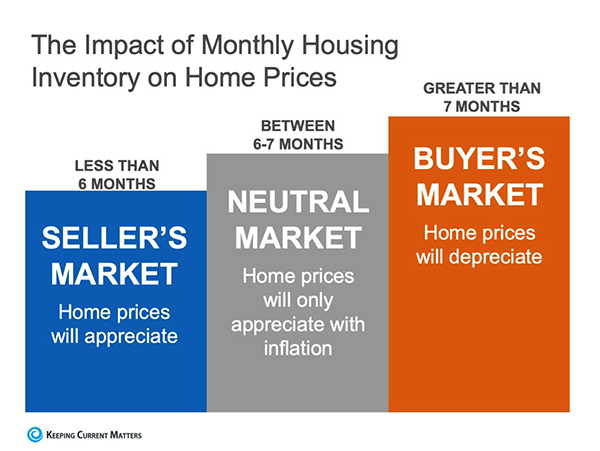|
|
|
|
|
In real estate, there is a simple guideline that often applies here. Essentially, when there is less than a 6-month supply of inventory available, we are in a seller’s market and we will see greater appreciation. Between a 6 to 7-month supply is a neutral market, where prices will increase at the rate of inflation. More than a 7-month supply means we are in a buyer’s market and can expect depreciation in home values.
|










